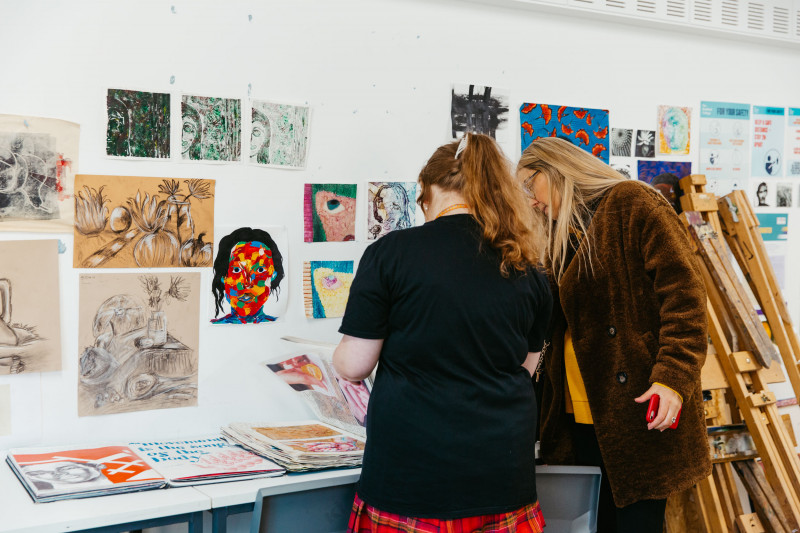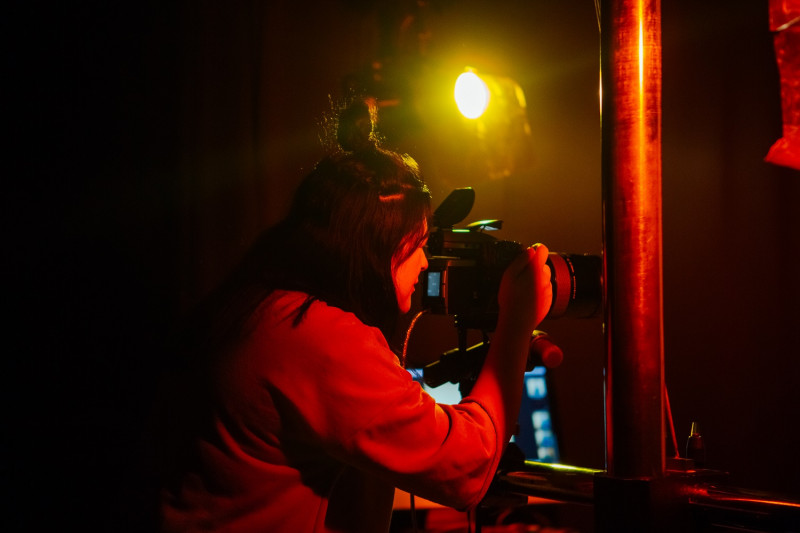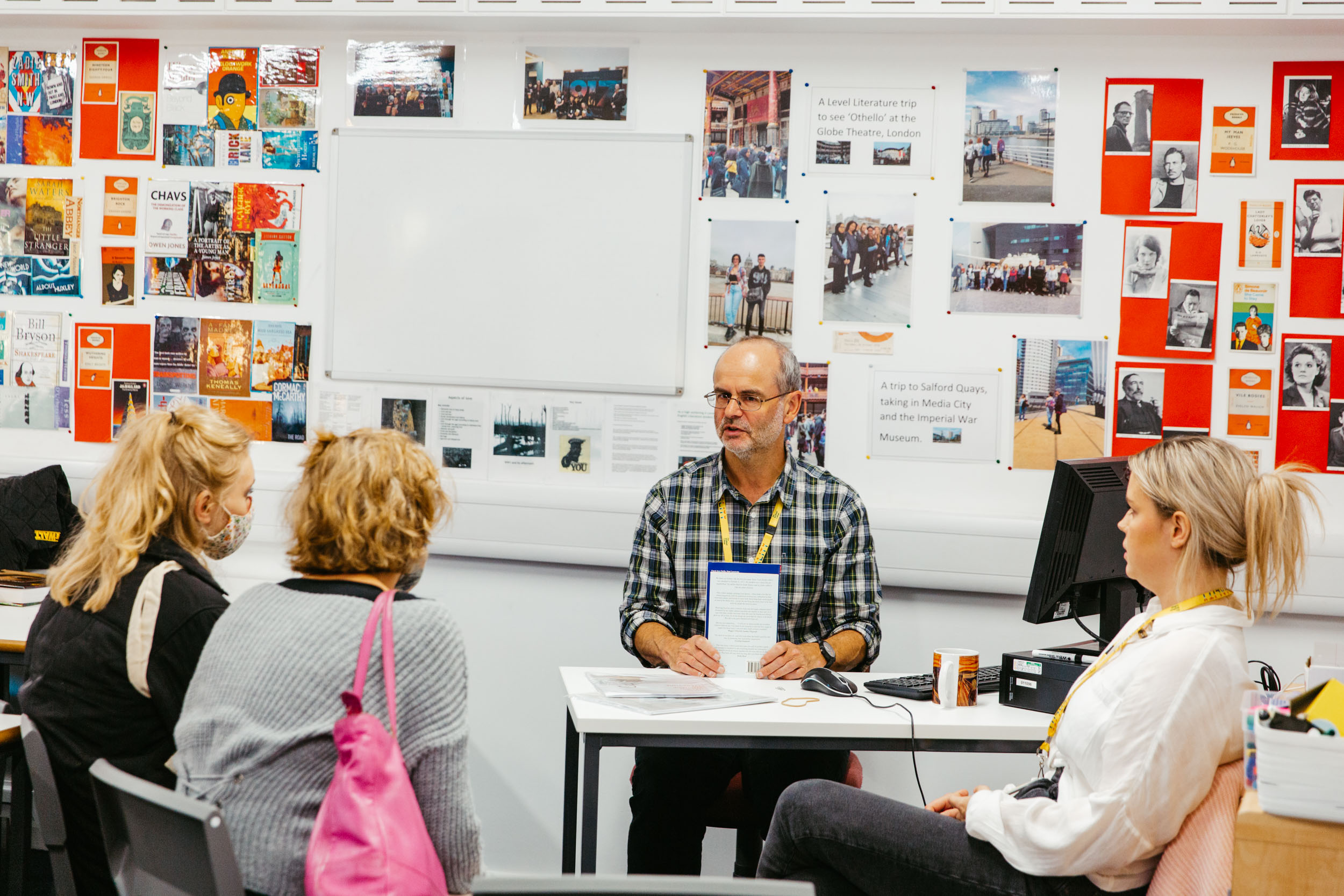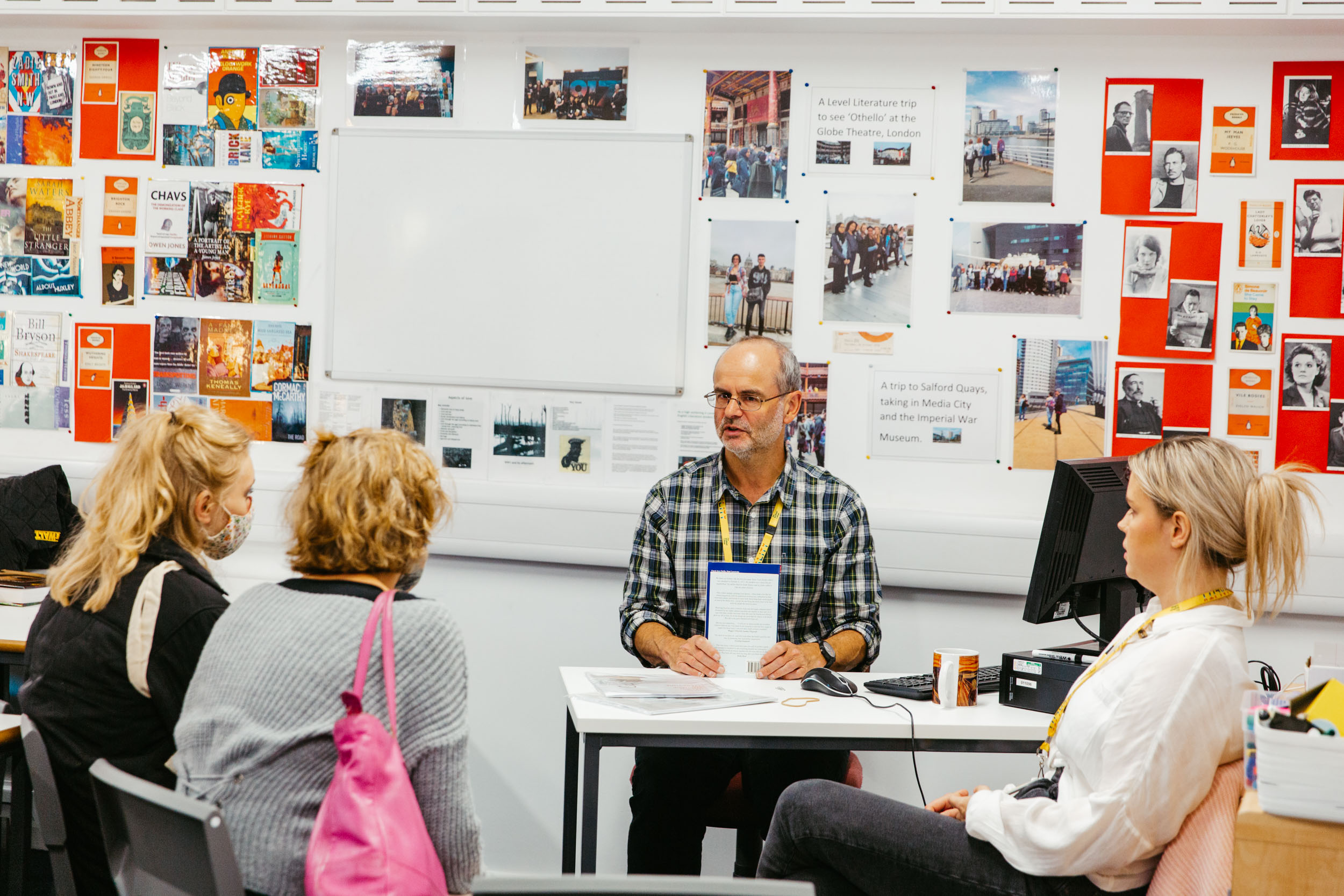About the Course
Fine art requires engagement with aesthetic and intellectual concepts through the use of traditional and/or digital media, materials, techniques and processes for the purpose of self-expression. Fine art may be created to communicate ideas and messages about the observed world, or can also be used to explore personal and cultural identity, society and how we live, visual language, and technology. Fine Art allows us to consider and reflect on our place in the world, both as individuals and collectively.
The Fine Art A Level is a comprehensive course that will allow you to learn and experiment with new techniques in order to develop as an artist. In addition to experimenting with a whole range of drawing and painting materials, you will also have the opportunity to try printmaking, collage, photography and mixed media.
Throughout the course you will also learn by looking at the work of a number of modern and contemporary artists and will gain the confidence to analyse and understand their ideas and techniques and to use this knowledge to develop your own work.
To begin with, coursework projects are teacher directed but as the course progresses, you will increasingly become a more independent learner and develop work based on your own interests and ideas.
There will be various course enrichment opportunities offered throughout the course, largely comprising of visits to exhibitions, both locally and nationally.
Key Units
Component 1: Personal Investigation
This component incorporates three major elements: supporting studies, practical work, and a personal study. You will create a portfolio of development work and outcomes based on themes and ideas developed from personal starting points.
Component 2: Externally Set Assignment
This unit incorporates two major elements:
Preparatory studies will comprise a portfolio of practical and written development work based on the Externally Set Assignment. During the 15–hour period of sustained focus under examination conditions, students will produce final outcome(s) extending from their preparatory studies in response to the Externally Set Assignment.
Entry Requirements
5+ GCSEs Grades 9-4 in different subjects, including English Language and Maths at a minimum of Grade 4.
Additional requirements include GCSE Grade 9-4 in an art related subject.
The Sheffield Sixth Form welcomes students who have studied vocational qualifications. However, the minimum entry requirements for the A Level programme, as shown above, must be GCSEs
Assessment
All of the practical coursework is assessed. There is a project, with a theme set by the exam board, ending with the production of a final (exam) piece of work. All work is assessed by your tutors and by a visiting examiner.
In addition, you will be expected to produce a 2,000 word essay that will be graded and assessed as part of your coursework.
Where Does This lead?
Students who decide to specialise in Art and Design can apply to the UAL (18+) Foundation Diploma in Art and Design at The Sheffield College.
In some cases you are able to progress straight to a university degree course in Art & Design after A Levels.
Tell Me More
An ideal student for this course would be one who is willing to experiment with new ideas, materials and techniques and who is really interested, not only in developing their own work but in looking at that of other artists.
Personal Study Time
A Level students are expected to devote a minimum of 5 hours to their studies outside of the classroom, as well as lessons. Homework will be set regularly but students are expected to undertake self-directed research as well.
Extra Costs
Although some students like to purchase some of their own materials (particularly for use at home) most materials/equipment are provided.
A Level Art students are asked to pay a £15 studio fee at the start of the year to contribute towards this. You will also need a hard backed A3 sketchbook (approx £12) and to pay for trips/visits (approx £30 for the first year and approx £40 for the second year).
Students in financial hardship can apply to the Student Support Fund for help towards these costs.




